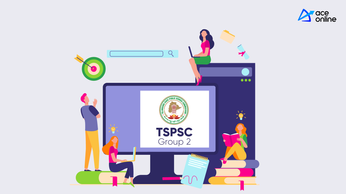
BE vs B.Tech: Understand the Differences and Similarities
National Council of Advanced Economic Research revealed that the most studied course in Graduation is Engineering Degree. Engineering is a field that focuses on the application of scientific, mathematical, and technical principles to design, develop, and maintain systems, structures, and machines. Engineering degrees prepare students to work in a wide range of Industries.
Engineering is a popular and challenging field of study that offers a wide range of opportunities for graduates. Two of the most common undergraduate degrees are the Bachelor of Engineering (BE) and Bachelor of Technology (B.Tech) degrees. While these degrees share many similarities, there are also some important differences that students should be aware of when deciding which program to pursue. In this article, we will explore the differences and similarities between BE and B.Tech degrees regarding curriculum, admission requirements, career opportunities, and recognition.

A major focus of the B.E. degree is to equip the student with the theoretical knowledge needed to innovate technology and also invent some new technical gadgets. B.Tech are usually application and skill-based courses. Its prime focus is on making the student understand the technology behind the working of gadgets and modifying or enhancing their quality of work.
BE/B. Tech Curriculum and Course of Study
One of the primary differences between BE and B.Tech degrees is the focus of their curriculum and course of study. BE programs are typically more theory-based and focus on the fundamental principles of engineering, including Mathematics, Physics, and Science. On the other hand, B.Tech programs are more application-oriented and focus on the practical aspects of engineering, such as Design, Implementation, and Testing.

For example, a BE program in electrical engineering may include courses in Circuit Theory, Digital Electronics, and Electromagnetics, while a B.Tech program in the same field may include courses in Electrical Machines, Control Systems, and Power Electronics. While both programs cover similar topics, the focus and approach to learning are different.
Engineering education is typically a combination of classroom instruction and hands-on learning experiences. Students may participate in laboratory experiments, design projects, and internships or co-op programs to gain practical experience in their field. Many engineering programs also require students to complete a capstone project or senior thesis that demonstrates their ability to apply engineering principles to solve real-world problems.

BE Vs B. Tech Admission Requirements
The admission process is the same for both BE and B.Tech programs. These programs are open to students who have completed their 10+2 (or equivalent) in the science stream and have studied Physics, Mathematics, and Chemistry with a minimum percentage set for admission to various universities. The cut-off score in a National Entrance Exam like JEE or EAMCET or a particular exam conducted by various Institutions and states.
BE Vs B. Tech Career Opportunities
BE and B.Tech graduates have similar job opportunities and career paths. Both degrees prepare students to work in a variety of industries, including aerospace, automotive, construction, energy, and manufacturing. Some common job roles for both BE and B.Tech graduates include design engineer, project engineer, research engineer, and production engineer. B.Tech graduates are more likely to advance to managerial or leadership roles in their field, while BE graduates may need to pursue additional education or training to advance in their careers.

BE Vs B. Tech Placements
BE and B.Tech degrees are both popular and widely recognized in India, but there are some differences in their reputation and acceptance in different industries. BE degrees are generally more recognized in government and public sector industries, while B. Tech degrees are more recognized in private-sector industries.
Conclusion
In addition to technical skills, engineering education also emphasizes the development of soft skills such as communication, teamwork, and problem-solving. These skills are essential for engineers to work effectively with colleagues, clients, and stakeholders to design and implement solutions that meet the needs of their clients or customers.
Overall, engineering education provides students with the skills and knowledge they need to pursue rewarding careers in a variety of industries, including aerospace, automotive, construction, energy, and manufacturing.

ACE Online Newsletter
Join the newsletter to receive the latest updates in your inbox.







